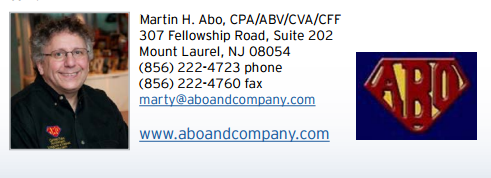 The Tax Cuts and Jobs Act (TCJA) made tax law changes that affected virtually every business and individual in this past tax year 2018 and the years ahead. One tax provision that taxpayers should be aware of is that a like-kind exchange, otherwise known as a 1031 exchange after the code section to which it applies, is now generally limited to exchanges of real property.
The Tax Cuts and Jobs Act (TCJA) made tax law changes that affected virtually every business and individual in this past tax year 2018 and the years ahead. One tax provision that taxpayers should be aware of is that a like-kind exchange, otherwise known as a 1031 exchange after the code section to which it applies, is now generally limited to exchanges of real property.
Download Printable Article (PDF) >>>
Here’s what you need to know:
Beginning after December 31, 2017, section 1031 like-kind exchange treatment applies only to exchanges of real property held for use in a trade or business or for investment, other than real property held primarily for sale. Before the law change, section 1031 also applied to certain exchanges of personal or intangible property, such as machinery, equipment, vehicles, artwork, collectibles, patents, and other intellectual property. Effective January 1, 2018 these types of assets do not qualify for nonrecognition of gain or loss as like-kind exchanges.
Generally, if you exchange business or investment real property solely for business or investment real property of a like kind, section 1031 provides that no gain or loss is recognized. If, as part of the exchange, you also receive other (not like-kind) property or money, gain is recognized to the extent of the other property and money received, but a loss isn’t recognized.
Properties are of like kind if they are of the same nature or character, even if they differ in grade or quality. Generally, real properties are like-kind properties, regardless of whether they are improved or unimproved. For example, an apartment building would generally be of like-kind to unimproved land. However, real property in the United States and real property outside the United States aren’t like-kind properties.
We often will recommend deferred exchanges. A deferred exchange occurs when the property received in the exchange is received after the transfer of the property given up. For a deferred exchange to qualify as like kind, you must comply with the timing requirements for identification and receipt of replacement property. The replacement property for the exchange must be identified within 45 days after the property being given up is transferred. The replacement property must be received within 180 days, or by the due date of the tax return including extensions, whichever is earlier. Real estate property includes land and generally anything built on or attached to it. Again, an exchange of real property held primarily for sale still does not qualify as a like-kind exchange.
A like-kind exchange is reported on Form 8824 which taxpayers must file with their tax return for the year the taxpayer transfers property as part of a like-kind exchange. This form certainly assists us tax professionals in helping our client figure the amount of gain deferred as a result of the like-kind exchange, as well as the basis of the like-kind property received if cash or property that isn’t of like kind is involved in the exchange. Take a look at the form as we think it flows almost logically!
If you make a deferred exchange using a qualified intermediary, the transfer of the property given up and receipt of like-kind property is treated as a like-kind exchange. If you fail to meet the timing requirements, your transaction won’t qualify as a deferred exchange and any gain may be taxable in the year you transferred the property.
Clear as mud, eh? Now you know why we at Abo and Company insist clients retain and rely on credible and seasoned real estate professionals, qualified intermediaries in tandem with real estate attorneys well versed in this arena.
FOR MORE INFORMATION:
Martin H. Abo, CPA/ABV/CVA/CFF is a principle of Abo and Company, LLC and its affiliate, Abo Cipolla Financial Forensics, LLC, Certified Public Accountants – Litigation and Forensic Accountants. With offices in Mount Laurel, NJ and Morrisville, PA, tips like the above can also be accessed by going to the firm’s website at www.aboandcompany.com.



